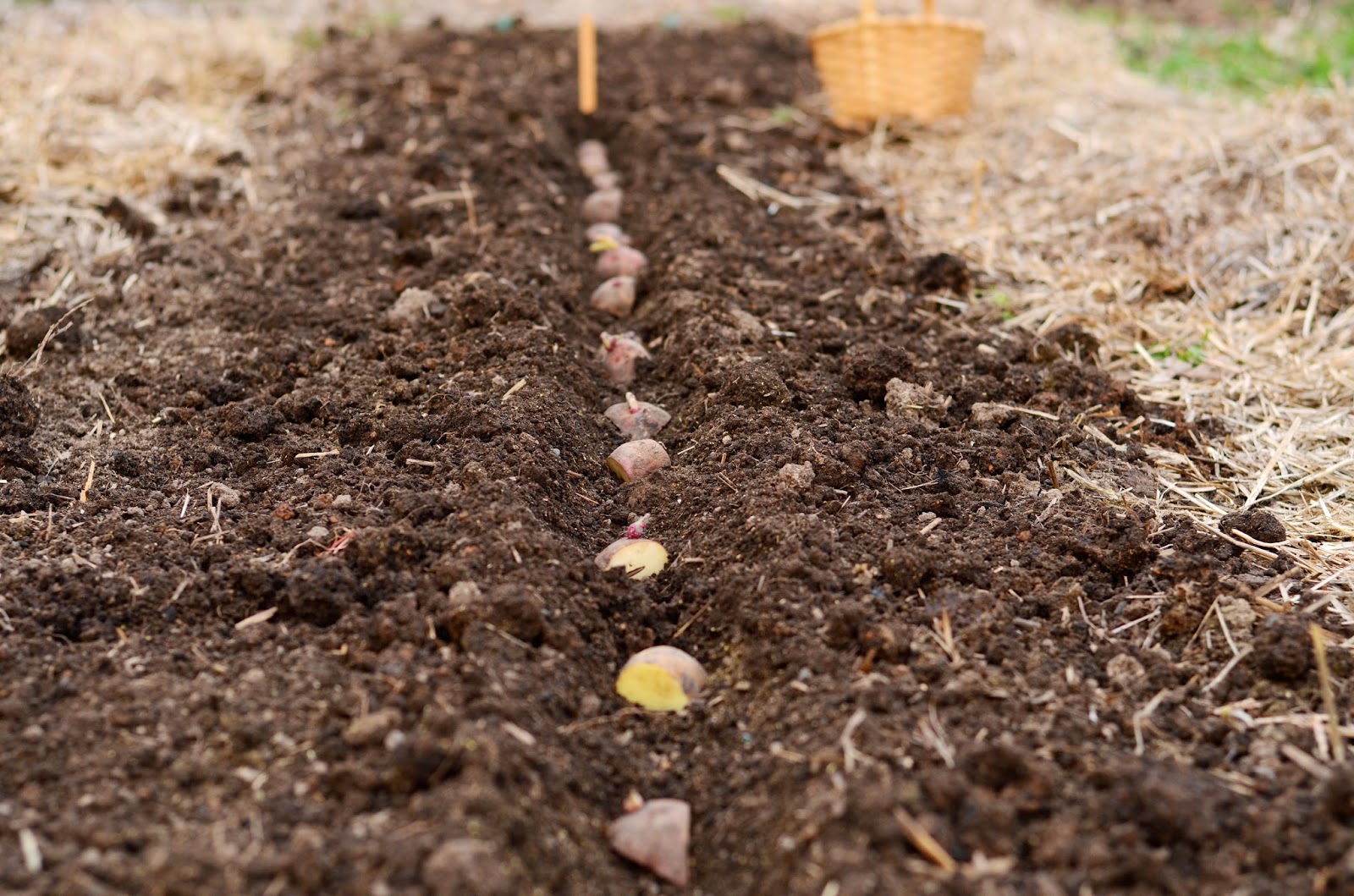As a gardener and farmer, I’m often asked if growing potatoes can actually benefit the soil. At first glance, potatoes may seem counterproductive for building soil health since they require extensive tillage and digging that disturbs the soil. However, with the right practices, potatoes can improve several aspects of soil quality over time.
Traditional Potato Growing Practices
Traditionally, potato production practices do not align well with principles for conserving or improving soil health. This is primarily due to the large amount of soil disturbance associated with growing potatoes. Here are some typical potato growing practices that disrupt soils
- Plowing or tilling fields before planting
- Hilling soil up around plants during growth
- Digging tubers at harvest
All this digging and soil movement can damage soil structure, break up fungal networks, bury surface residue, and cause compaction issues. It also leaves soil vulnerable to erosion. As a result, intensive potato cultivation has gained a reputation for degrading soil over the long-term.
How Potatoes Can Improve Soil
However potato growing practices don’t have to degrade the soil. With conscientious management focused on soil health, potatoes can actually provide the following benefits
-
Organic matter – Potato plants contribute organic material to the soil through roots, vines, and crop residue. This feeds soil microbes and fuels the beneficial soil food web.
-
Soil structure – As organic matter increases from potato crop inputs, soil aggregates and porosity improve. This creates a better environment for roots, water infiltration, and microbial activity.
-
Nutrients – Potato crops take up and concentrate macronutrients and micronutrients from the soil. When crop residue decomposes, many of these nutrients are cycled back into the soil. This includes nitrogen, phosphorus, potassium, calcium, magnesium, sulfur, iron, manganese, boron, zinc, and copper.
-
Tilth – The digging action of harvesting potatoes can help break up compacted subsurface soil layers. This aerates the soil and creates a soft, crumbly texture ideal for tuber growth.
-
Drainage – By fracturing dense, restrictive layers below ground, potato cultivation can improve drainage in wet fields. This facilitates downward water movement and prevents waterlogging.
-
Microbes – Disturbing the soil accelerates decomposition of organic matter. This provides a flush of nutrients for soil microorganisms and spurs microbial population booms.
Best Practices for Soil-Friendly Potato Growing
To maximize soil-improving benefits from potato production:
- Use low/no-till practices when possible to maintain soil structure
- Allow rotation periods of 3+ years between potato crops
- Plant cover crops after potatoes to replenish organic matter
- Reduce compaction by limiting field traffic when soils are wet
- Use straw or compost mulch to conserve moisture and suppress weeds
- Include composts or manures when preparing potato beds
- Test soils regularly and only apply recommended nutrients
Adopting a long-term outlook focused on sustaining soil health helps ensure potato cropping builds up, rather than degrades, your soils over time.
Real-Life Examples of Soil-Building Potatoes
Many farmers are finding ways to successfully grow potatoes while also supporting soil conservation goals:
-
Rockey Farms, Colorado – Stopped conventional practices, minimized tillage, and integrated diverse cover crop rotations. They’ve seen impressive gains in soil carbon, structure, and fertility as a result.
-
Singling Brothers, North Dakota – Carefully integrate potatoes into no-till crop rotations with covers like cereals and broadleaf crops. They credit potatoes with helping break up soil compaction on their fields.
-
Hoch Orchard and Gardens, Wisconsin – Use straw mulch and grass pathways between potato rows to protect soils year-round. Add compost each season to increase soil’s nutrient and water holding capacities.
The Bottom Line
Traditional potato cultivation techniques have gained a reputation for degrading soils. But with practices focused on minimizing soil disturbance, building organic matter, and supporting soil biology, potato cropping can positively impact multiple aspects of soil health like structure, nutrient cycling, and water dynamics. While they require intensive management, potatoes can be successfully produced in truly soil-friendly systems.
Planting Potatoes: Soil Preparation, Fertilizing, Varieties and Planting Depth
FAQ
Are potatoes good for your soil?
Are potatoes good for breaking up soil?
How do potatoes help soil?
What happens when you put a potato in soil?
How do you grow potatoes in a garden?
Add organic matter: Add organic matter, such as compost or aged manure, to the soil. This will improve soil fertility and help the soil retain moisture. Spread a layer of organic matter over the soil and mix it in with a garden fork or tiller. Test soil pH: Potatoes prefer a slightly acidic soil with a pH between 5.0 and 6.0.
Are potatoes good for soil health?
Soil Health in Potato Systems Overview Challenges Potatoes are an important food for people around the world. However, the cultural practices involved in growing potatoes present challenges to soil health.
What is the best soil for potatoes?
Potatoes will do best in soils with a pH of between 5.2 and 6.4. If you have a neutral or slightly alkaline soil, you can gently amend the pH to improve your potato harvest. To make soil slightly more acidic you can: Add plenty of organic matter. Especially pine needles, oak leaves, etc…
Why is soil health important in potato cropping systems?
Suppressing potato pests, thereby improving tuber yield and quality. Ultimately, improving soil health in potato cropping systems can improve farm profitability, resilience, and sustainability of the potato enterprise. Soil Health in Potato Systems Overview Challenges Potatoes are an important food for people around the world.
- A Complete Guide to Caring for Yuki Cherry Blossom Shrub - January 23, 2025
- Identifying Red Hot Poker Seeds: What to Look For When Harvesting Torch Lily Pods - January 23, 2025
- A Complete Guide to Harvesting Evening Primrose Seeds - January 23, 2025

